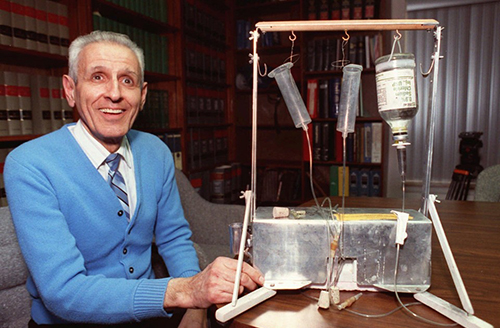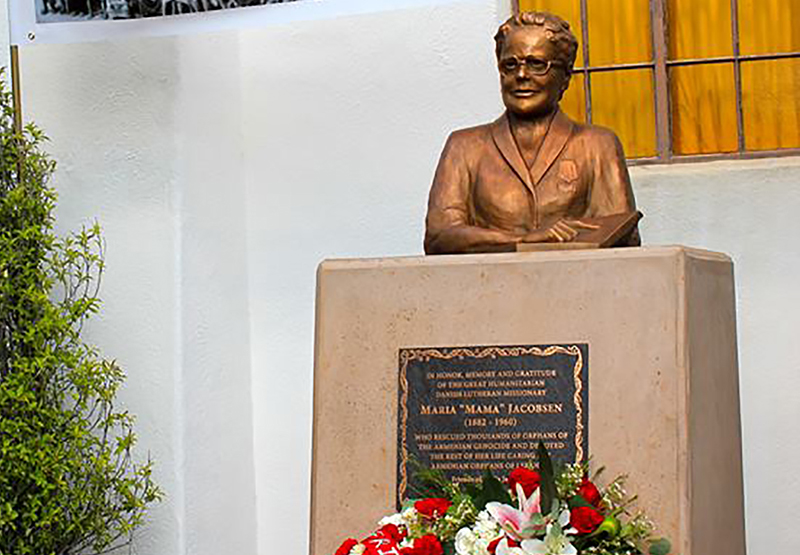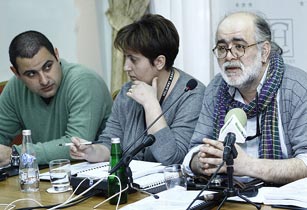ANN ARBOR, MI — An archive on Dr. Jack Kevorkian is available for the public at Bentley Historical Library at the University of Michigan. There are nine boxes full of manuscripts, photos, newspaper clippings and research.
The archives are donated by Ava Janus, his niece and sole heir. It spans from 1911 to 2014 and includes correspondence and manuscript drafts, and files on assisted suicides, including medical histories, photographs, video and audio.
Kevorkian, a graduate of Michigan’s Medical School, died in 2011 in suburban Detroit at 83. He sparked the national right-to-die debate with a homemade suicide machine that helped end about 130 ailing people’s lives, using the term “medicide” to describe physician-assisted suicide. Kevorkian was convicted of second-degree murder in 1999 for assisting in the 1998 death of a Michigan man with Lou Gehrig’s disease. He was released from prison in 2007.
While rooted in the past, the archive has been unveiled at a time when the movement gains ground. In October, California became the fifth state — following Oregon, Washington, Vermont and Montana — where physician-assisted deaths are legal, and that’s made proponents of right-to-die legislation optimistic about possible successes elsewhere. Other bills are pending.
“The collection humanizes him. People think of Dr. Death as this scary figure who was a political mobilizer. He was also a child of immigrants, star student in his class. You see him as a real human being and I think that’s the value of the archival collection that we have,” says Terry McDonald, Bentley Historical Library director.
For lead archivist Olga Virakhovskaya, the collection sums up Kevorkian’s paradoxes and reflects his past and present influence.
“This conversation (on physician-assisted suicide) that we have as a nation is his legacy,” she said. “He was a controversial person, but he was a brilliant scientist.









